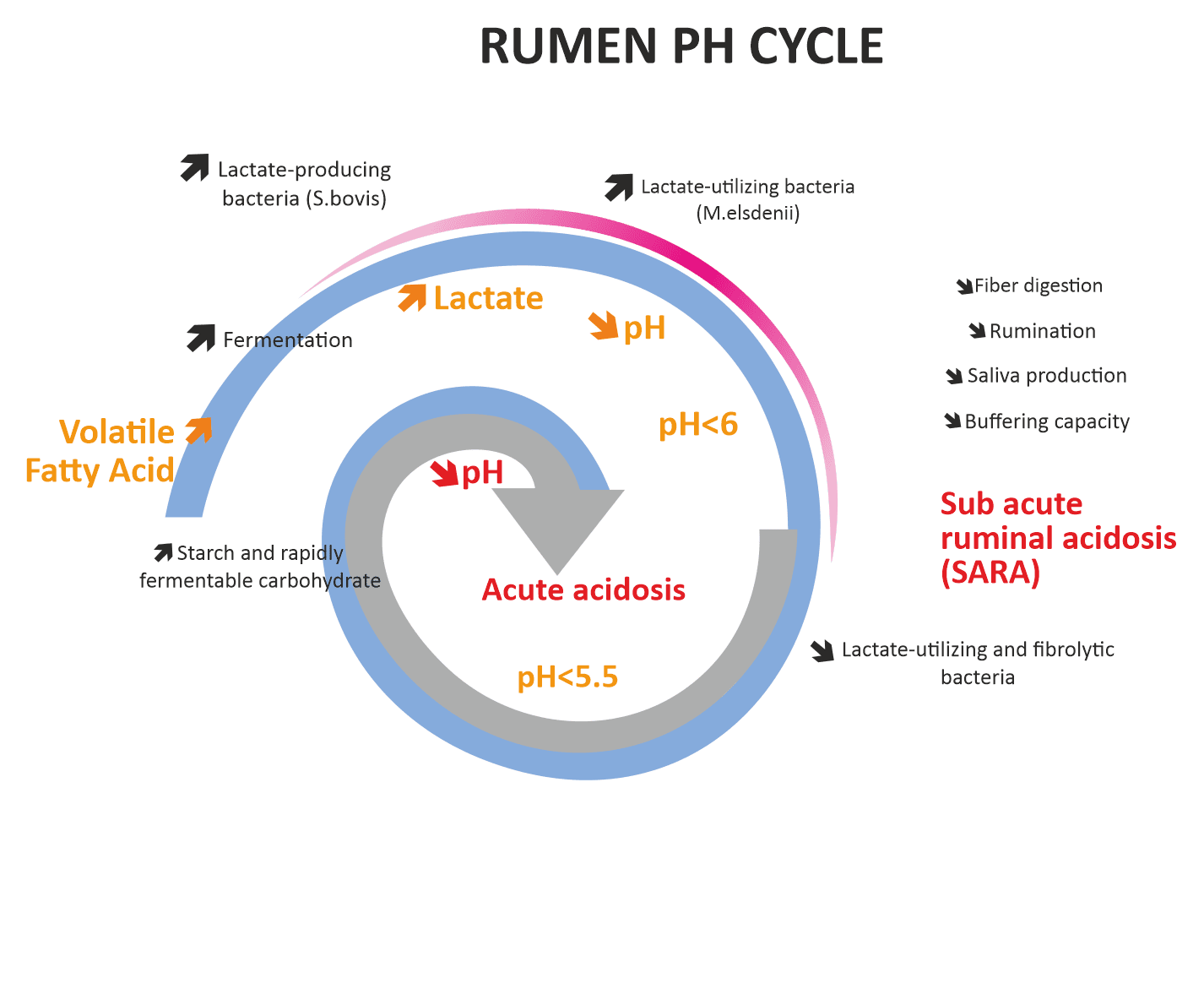Conventional feed probiotic – Saccharomyces cerevisiae

Animal feed yeast – is used to alter rumen fermentation to improve nutrient digestion, reduce the rumen acidosis risk, and improve animal performance. The use of yeast in animal feed improves the nutritive value of the feed due to its high energy, protein, and amino acid content.
Direct-fed microbial used in ruminant feed supplements include live microbial cells. (yeasts, molds, and bacteria) and(or) their metabolites to alter the rumen and lower-gut microflora. Yeast is supplemented in dairy diets to improve animal performance and is considered a ‘natural’ alternative to antibiotics. When fed to lactating dairy cows, improved milk production is the most consistent benefit reported, however, increased dry matter intake (DMI) and milk fat percentage have been shown.
Less conventional feed probiotic – Propionibacterium freudenreichii
Propionibacteria are found naturally in the rumen and makeup 1.4% of total ruminal microflora. Propionibacteria play a vital role in the production of glucose (gluconeogenesis), spares glucogenic amino acids and inhibition of hepatic lipid oxidation. Therefore, they have been used for improving energy metabolism for dairy animals, especially in the transition period from gestation to lactation.
Dairy propionibacteria have proven to possess many promising properties such as the production of nutraceuticals like vitamin B2, B12, K and conjugated linoleic acid, and their health-promoting effects could be attributed to one or more of the following modes of action: i) influence on gut microbial composition and exclusion of pathogens; ii) modulation of the metabolic activities of the microbiota and host, and iii) immunomodulation
The blend of Saccharomyces cerevisiae and Propionibacterium freudenreichii synergistically changes in the rumen microbial population, rumen fermentation, intestinal nutrient flow, and diet digestibility. It could be concluded that propionibacteria as feed supplements can play a vital role in the enhancement of ruminants’ productive performance.
VINYEAST-P, a novel blend of Saccharomyces cerevisiae and Propionibacterium freudenreichii
Balancing the rumen ecosystem is a balancing act. By maximizing fermentation, the dairy cows obtain more volatile fatty acids for energy and microbial protein. Consecutively, more fermentation produces more acid and lowers the rumen pH. The lower rumen pH can depress fibre digestion and lead to metabolic acidosis.
Vinyeast-P enables the stability between enhanced rumen function and rumen ecosystem. Each probiotic has synergistic harmonious mode of action which ensures efficient stimulating effect on rumen metabolism and productive performance.

